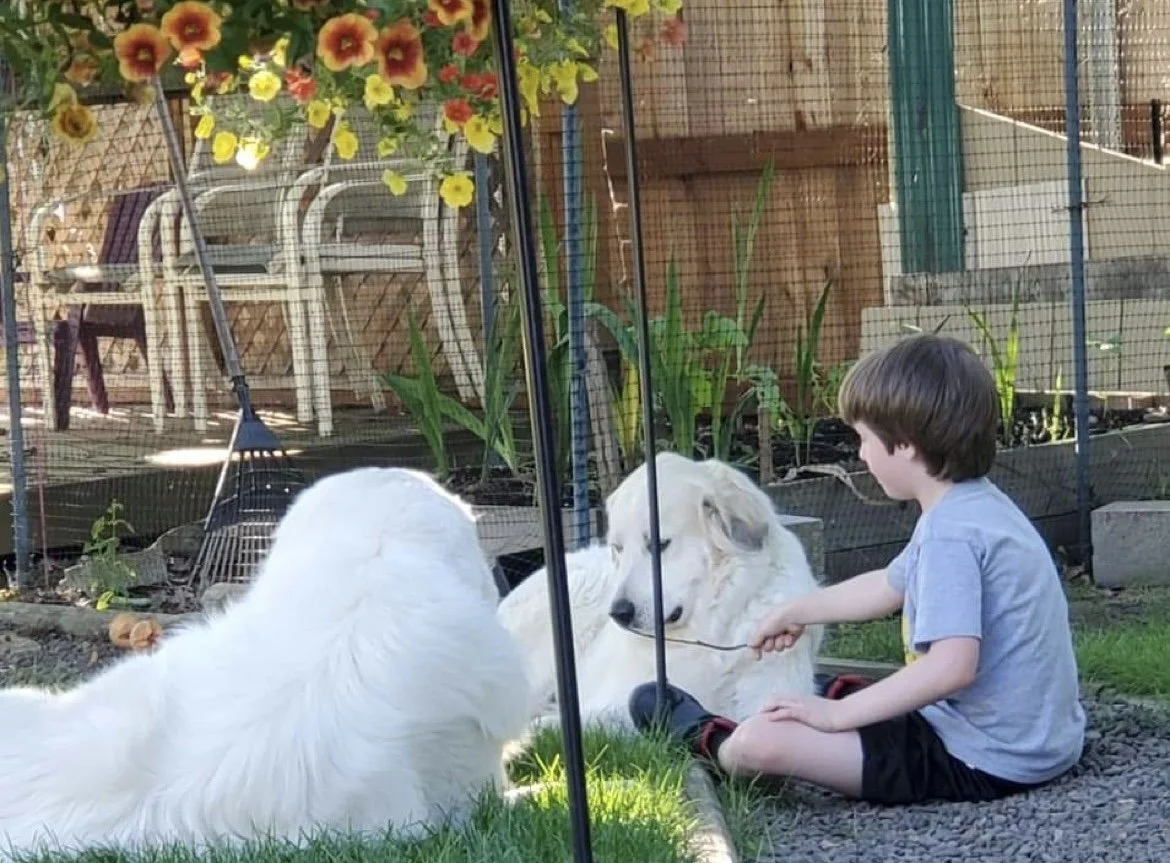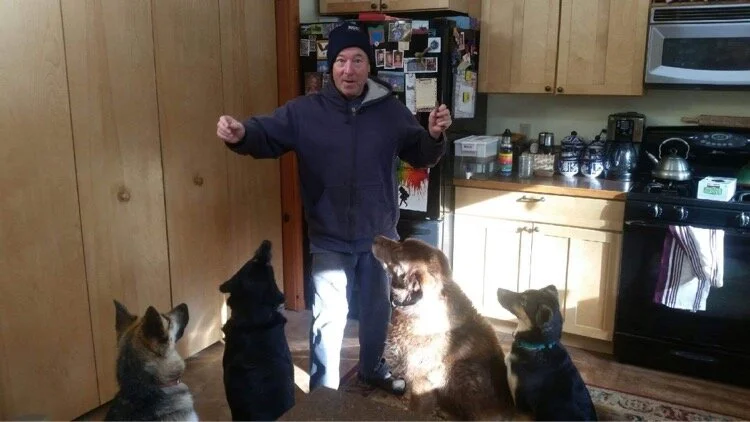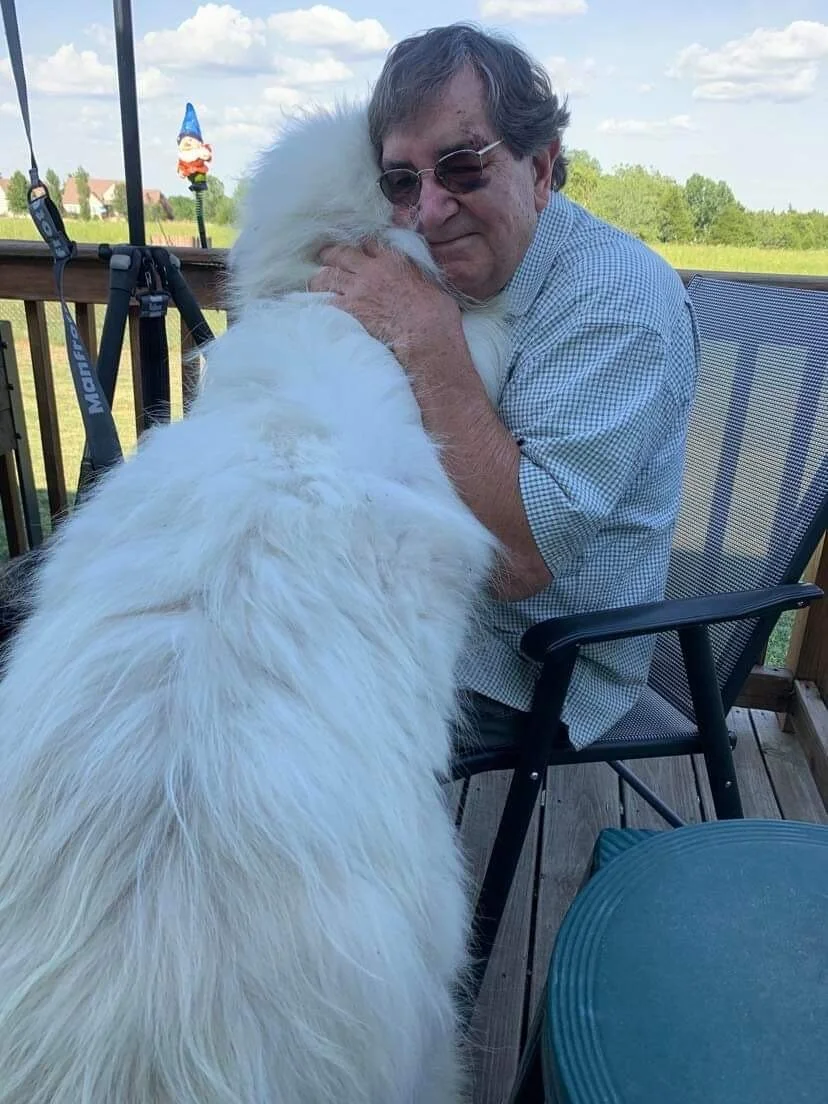We tried several trainers for her anxiety and aggression to no avail. She had Addisons disease. When we worked with Roman, things got…
Addressed resource guarding with secure attachment
Secure attachment relationship training has done wonders
No more talk of him being euthanized for simply being unhappy
My husband and I were referred to Roman by a Great Pyrenees rescue organization. Our then year-and-a-half Great Pyrenees is autistic and OCD and had also been diagnosed with depression and anxiety. Vet-prescribed medication helped with the depression, but Homer still was experiencing extreme anxiety and, after having been a happy puppy when we first got him, was now avoiding us, eating very little, and getting completely out of control when there was thunder or any other loud noise or extreme weather shift.
Roman helped us to understand some of what Homer must be feeling after having had to be boarded with the farming couple where he was born as we went through a difficult move. The stay on the farm had to be extended a couple of times, for reasons beyond our control, and Homer was very unhappy. The husband of the couple believed Homer should be put down. When he came back to us, our other dog wasn’t particularly welcoming and basically Homer just withdrew. He would only eat if I held the bowl and then only about every three days. As time went on he became more and more upset when there were loud noises or shifts in the barometric pressure. He would attempt to claw and bite his way out of the kennel and would bark hysterically. The sedatives we were using became less and less effective. My husband also thought Homer should be put down.
On Roman’s advice, we added CBD oil to Homer’s medications and changed his food to Farmina. We also began to speak to Homer in very soft, calm voices and that made a big difference. Gradually Homer began to resemble something like a “normal” dog, unless, again, there was thunder or gunshots (we live in the country and there is a lot of hunting) or fireworks and then he just got worse and worse. Roman then spoke to a colleague about Homer, who performed (unknown to us) a healing ceremony and he and Roman both recommended our creating a “nest” kind of bed for Homer in the big kennel Homer shares with Mystical, our other dog, and our also performing a cleansing ceremony around the kennel. Homer will never be a completely “normal” dog. He will also probably always require some medication. But he is eating very well now, maintains eye contact, plays with Mystical, is much more affectionate with my husband and me, and has even begun to be able to self-soothe at times when he is upset. Even when we have to intervene and give him sedatives, he is settling down much more quickly and returning to a relaxed state much sooner than he was. We are extremely grateful for Roman’s patience with us, his insights into Homer’s psychology, and his willingness to collaborate with other holistic practitioners. Homer will be two years old in January and our hope is that he will continue to improve. He already has a much better quality of life and there is no more talk of his being euthanized for simply being unhappy.
I will admit that at times Roman and his advice has seemed way too far out and “new-agey” for me, but the fact is: our lovely dog is much happier and healthier and we now have hope for the future. Thank you so much, Roman Gottfried.
(The Rev.) Mary Schrom Breese, Rector
Epiphany Episcopal Church, KS




